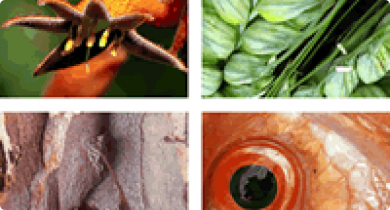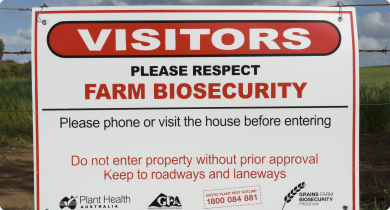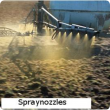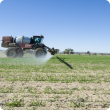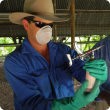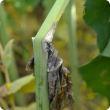Pests, weeds & diseases
Pests, weeds and diseases pose a serious risk for primary producers as they can impact on market access and agricultural production.
To reduce the impact of pests, weeds and diseases, the Department of Primary Industries and Regional Development:
- works with landholders, grower groups, community groups and biosecurity groups.
- provides diagnostic services and information on prevention, management and treatment.
- provides biosecurity and quarantine measures to prevent introduction, and to eradicate or manage current pests.
For advice on pests, weeds and diseases search our website, the Western Australian Organism List or contact our Pest and Disease Information Service (PaDIS).
For diagnostic services, please contact our Diagnostic Laboratory Services.
Filter by search
Filter by topic
- (-) Remove Control methods filter Control methods
- Chemicals (215) Apply Chemicals filter
- Herbicides (139) Apply Herbicides filter
- Crops (93) Apply Crops filter
- Grains (84) Apply Grains filter
- Weeds (78) Apply Weeds filter
- Declared plants (45) Apply Declared plants filter
- Mechanical, physical and cultural (43) Apply Mechanical, physical and cultural filter
- Diseases (42) Apply Diseases filter
- Pests (37) Apply Pests filter
- Grains research & development (30) Apply Grains research & development filter
- Fungi (28) Apply Fungi filter
- Crop diseases (28) Apply Crop diseases filter
- Biosecurity & quarantine (26) Apply Biosecurity & quarantine filter
- Crop weeds (24) Apply Crop weeds filter
- Biosecurity (24) Apply Biosecurity filter
- Wheat (23) Apply Wheat filter
- Livestock & animals (20) Apply Livestock & animals filter
- Baits & poisons (19) Apply Baits & poisons filter
- Pest animals (18) Apply Pest animals filter
- Weeds of National Significance (17) Apply Weeds of National Significance filter
- Fungicides (16) Apply Fungicides filter
- Pest mammals (15) Apply Pest mammals filter
- Canola (15) Apply Canola filter
- Livestock management (14) Apply Livestock management filter
- Preventing residues (13) Apply Preventing residues filter
- Barley (13) Apply Barley filter
- Livestock biosecurity (13) Apply Livestock biosecurity filter
- Biological control (13) Apply Biological control filter
- Lupins (12) Apply Lupins filter
- Pest insects (10) Apply Pest insects filter
- 1080 (10) Apply 1080 filter
- Pulses (9) Apply Pulses filter
- Invasive species (9) Apply Invasive species filter
- Residues in livestock (8) Apply Residues in livestock filter
- Insecticides (8) Apply Insecticides filter
- Veterinary chemicals (7) Apply Veterinary chemicals filter
- Residues in crops (7) Apply Residues in crops filter
- Livestock health & diseases (7) Apply Livestock health & diseases filter
- Oats (7) Apply Oats filter
- Livestock species (6) Apply Livestock species filter
- Field peas (6) Apply Field peas filter
- Strychnine (5) Apply Strychnine filter
- Pastures (5) Apply Pastures filter
- Food, export & investment (5) Apply Food, export & investment filter
- Livestock disease surveillance (5) Apply Livestock disease surveillance filter
- Beef cattle (5) Apply Beef cattle filter
- Horticulture (4) Apply Horticulture filter
- Grains Research & Development (4) Apply Grains Research & Development filter

